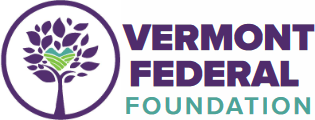July 21, 2020 -
The COVID-19 pandemic has resulted in a significant amount of fraudulent activity from scammers who are taking advantage of this volatile time period. The U.S. government, FBI and other law enforcement agencies are asking all financial institutions and individuals to exercise extreme caution and to be on the lookout for COVID-19 related scams.
The following is a list of just some of the impostor scams and illegal activity that have been seen and reported:
- A customer indicating that a person claiming to represent a government agency contacted him or her by phone, email, text message, or social media asking for personal or bank account information to verify, process, or expedite Economic Impact Payments (EIPs), unemployment insurance, or other benefits. In particular, be alert to communications emphasizing "stimulus check" or "stimulus payment" in solicitations to the public.
- Unsolicited communications from purported trusted sources or government programs related to COVID-19, instructing readers to open embedded links or files or to provide personal or financial information, including account credentials (i.e. usernames and passwords). No entity needs this information in order to send you a payment.
- Solicitations where the person, email, or social media advertisement seeks donations on behalf of a reputable organization, but is not affiliated with the reputable organization.
There has been also been an uptick in money mule schemes, wherein the scammer tricks and grooms a victim to transfer illegally acquired money on behalf of or at the direction of another. A common example is a victim may become involved in a online romantic relationship with a stranger, who in turn uses the victim's accounts to launder money for criminal purposes.
The following is a list of money mule scams that have become prevalent:
- A member receives multiple state unemployment insurance payments to his or her accounts within the same disbursement time-frame (i.e. weekly or biweekly).
- The member's account(s) receive an unemployment deposit from a different state in which he or she reportedly resides or has previously worked.
- Deposited funds are quickly diverted via wire transaction to foreign accounts located within countries known for having poor anti-money laundering controls.
- A member states, or information shows, that an individual, whom the member may not have known previously, requested financial assistance to send and/or receive funds through the member' personal account, including requests by individuals claiming to be a:
- U.S. service member who is reportedly stationed abroad;
- U.S. citizen working or traveling abroad;
- U.S. citizen quarantined abroad
Fraudsters are clever and are good at acquiring the trust of unwitting victims. Be vigilant and cautious of any communication regarding access to your finances or anyone claiming to provide or be in need of COVID-19 relief.
- Never give out personally identifiable information (i.e. Social Security number or date of birth) to an unknown person, especially one that has solicited this information unexpectedly.
- Never give out your online banking username or password. No institution needs this information in order to send you unemployment insurance or any other payment.
- Do no click on links within emails from strangers. Be aware if hovering over the link does not have the same URL as is stated in the email.
- Only donate to verifiable charities through their own websites. Do not assume solicitations for donations through email or by phone are legitimate.
To learn more about the specific threats and how you can safeguard your personal financial situation, please visit FinCEN's website.
We are here to help. If you are concerned that you may have given out personal information, have noticed suspicious activity within your accounts, are uneasy about a communication you have received, or have any general questions about keeping your financial information and identity safe, please call us at (888) 252-0202.
Vermont Federal Credit Union is a $900 million-plus full-service, not-for-profit, cooperative financial institution that has served Vermonters for more than 70 years, with eight locations currently serving over 50,000 members. Members are part of a cooperative, meaning they share ownership in the Credit Union and elect a volunteer board of directors. Vermont Federal Credit Union provides membership to anyone who lives, works, worships, or attends school in all of Vermont. Vermont Federal Credit Union is committed to supporting its communities and helping Vermonters prosper, no matter where they may be on life’s journey. Learn more about Vermont Federal Credit Union.






